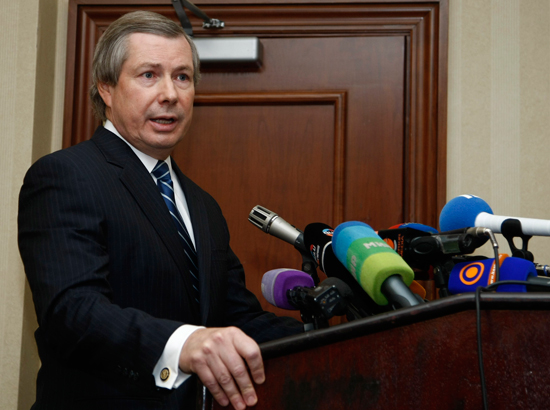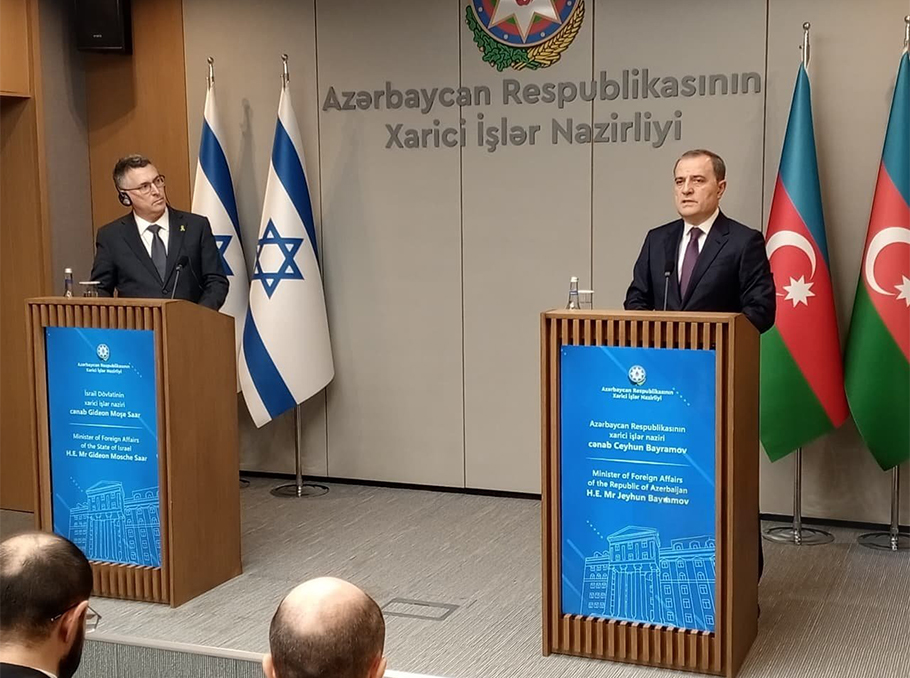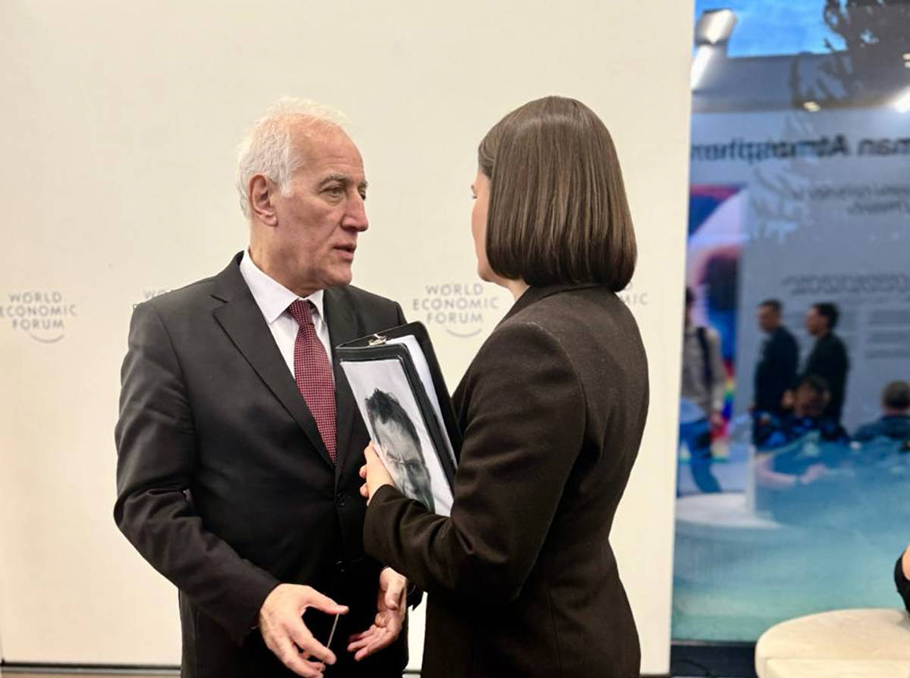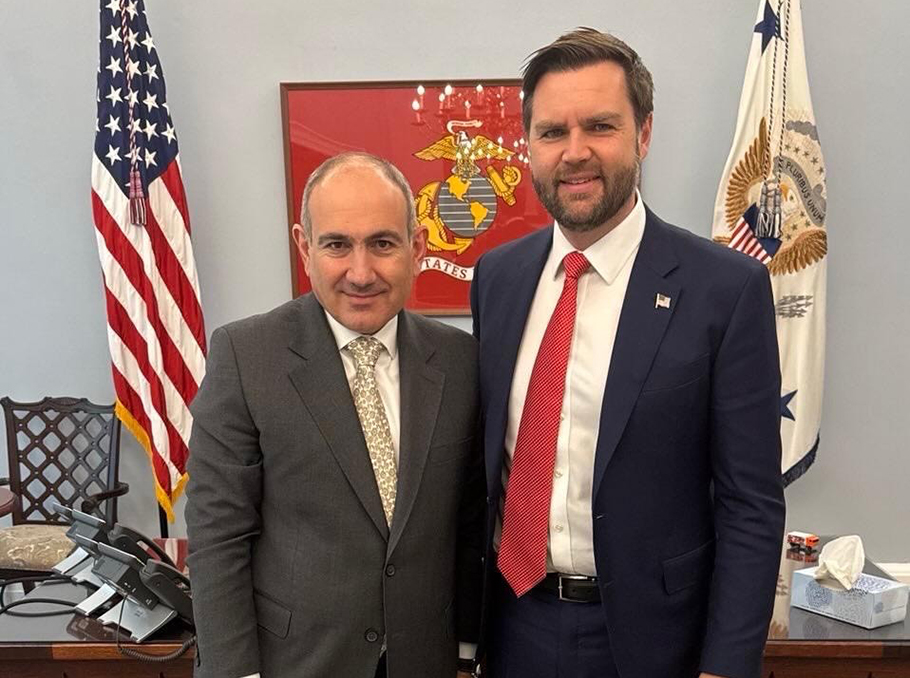Yerevan /Mediamax/. OSCE Minsk Group Co-Chairs will visit Nagorno Karabakh next week.
OSCE Minsk Group Co-Chair James Warlick said this speaking on “Nagorno-Karabakh: The Keys to a Settlement” at Carnegie Endowment for International Peace, Mediamax reports.
“Next week will mark 20 years since a ceasefire agreement was signed. While we can take some pride in having avoided a return to outright war, we must also agree that the current state of affairs is unacceptable, and unsustainable.
Perpetual negotiations, periodic outbreaks of violence, the isolation of Armenia and the people living in Nagorno-Karabakh, frustration in Azerbaijan and anger among its populations of IDPs – this is not a recipe for peace or stability and it is certainly not the path to prosperity. The people of the region deserve better”, said the American diplomat.
According to him, there is no question that any enduring peace agreement must reflect the views of all affected parties if it is to succeed.
“In the capitals, I have heard a more reassuring message. Both presidents want to make progress. Both agree that the series of documents negotiated over the past several years contains the outlines of a deal. It is clear, however, that only the presidents have the ability to conclude a deal with such transformative consequences for their countries. It is the presidents who must take the bold steps needed to make peace. The United States has pressed both leaders to meet again soon and take advantage of this window of opportunity when peace is possible”, said James Warlick.
He recalled that at the heart of a deal are the UN Charter and relevant documents and the core principles of the Helsinki Final Act. In particular, we focus on those principles and commitments that pertain to the non-use or threat of force, territorial integrity, and equal rights and self-determination of peoples.
“Building on that foundation, there are six elements that will have to be part of any peace agreement if it is to endure. While the sequencing and details of these elements remains the subject of negotiations, they must be seen as an integrated whole. Any attempt to select some elements over others will make it impossible to achieve a balanced solution”, he said.
The elements presented by the American diplomat are as follows:
“First, in light of Nagorno-Karabakh’s complex history, the sides should commit to determining its final legal status through a mutually agreed and legally binding expression of will in the future. This is not optional. Interim status will be temporary.
Second, the area within the boundaries of the former Nagorno-Karabakh Autonomous Region that is not controlled by Baku should be granted an interim status that, at a minimum, provides guarantees for security and self-governance.
Third, the occupied territories surrounding Nagorno-Karabakh should be returned to Azerbaijani control. There can be no settlement without respect for Azerbaijan’s sovereignty, and the recognition that its sovereignty over these territories must be restored.
Fourth, there should be a corridor linking Armenia to Nagorno-Karabakh. It must be wide enough to provide secure passage, but it cannot encompass the whole of Lachin district.
Fifth, an enduring settlement will have to recognize the right of all IDPs and refugees to return to their former places of residence.
Sixth and finally, a settlement must include international security guarantees that would include a peacekeeping operation. There is no scenario in which peace can be assured without a well-designed peacekeeping operation that enjoys the confidence of all sides.
The co-chairs of the Minsk Group share a common interest in helping the sides reach a peaceful resolution. We intend to continue working through the Minsk Group as the primary channel for resolving this conflict. Together with France, the United States and Russia share a common commitment to peace and security in Nagorno-Karabakh. The United States stands ready to help in any way we can. I would also call on the diaspora communities in the United States and around the world to speak out for peace and to help bring an end to this conflict”, concluded James Warlick.
Mediamax recalls that 6 Basic Principles of Madrid Document were first publicly announced in Joint Statement’s fact sheet, made by OSCE Minsk Group Co-Chair countries in l'Aquila in 2009.




















Comments
Dear visitors, You can place your opinion on the material using your Facebook account. Please, be polite and follow our simple rules: you are not allowed to make off - topic comments, place advertisements, use abusive and filthy language. The editorial staff reserves the right to moderate and delete comments in case of breach of the rules.